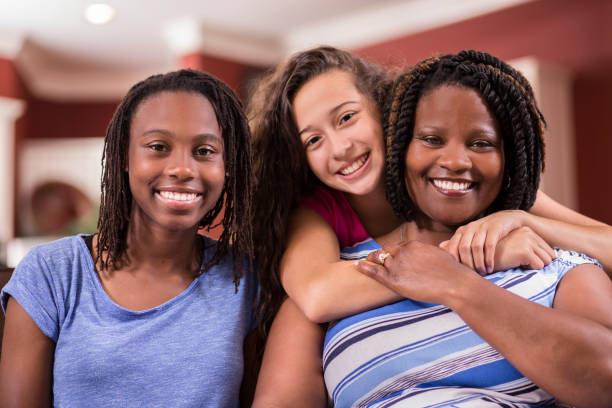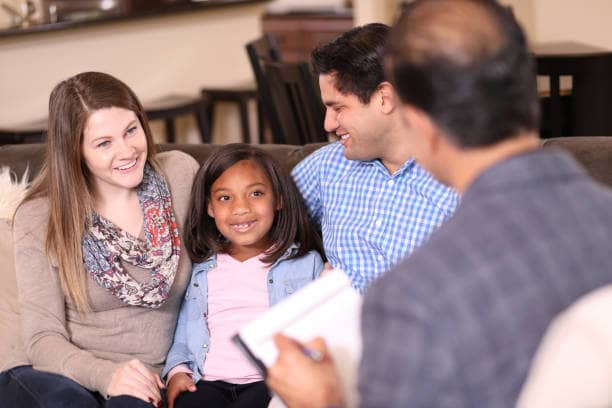Adoption Reunion: 7 Killer Steps To Have Good Success

An adoption reunion is one of life’s moments that are filled with emotional roller coasters and transformative experiences, as it marks the bringing together again of families separated by time, circumstances, and distance.
Whether you are an adoptee searching for your birth family, adoptive families going through complex relationships, or birth families seeking to reconnect with their child, this journey to have a successful reconnection requires emotional preparation and careful planning.
The path to a perfect adoption reunion is not straightforward. Statistics show that though many biological families’ reconnection brings lasting relationships, others are faced with many challenges that can make the participants feel emotionally overwhelmed and disappointed.
The only difference is the approach. Those who entered this process with proper preparation, professional guidance, and perhaps with clear boundaries are always more likely to achieve the connection they want.
In today’s digital age, it has become much easier to find biological family members than ever before; with just DNA testing services and social media platforms, the first contact is easier. However, the real work to build sustainable relationships starts after the initial conversation.
From managing your expectations and being ready to navigate complex emotions to building healthy communication patterns and not overstepping everyone’s boundaries, a would-be adoption reunion success requires that you be courageous and ready.
In this guide, I will walk you through seven actionable steps that have helped many people and families create positive reconnection experiences. I will also show you how to emotionally prepare for this journey, approach the first contact with respect and sensitivity, and build a solid foundation that honors relationships with your extended family and everyone involved.
Let’s dive in.
Preparing Emotionally for Your Adoption Reunion Journey:
Before you initiate the first contact with the biological family members, you must get yourself prepared emotionally for the reunion. Going for professional counseling can be invaluable during this vulnerable period, as it will help you process complex feelings about abandonment, identity, and belonging.
Many adoption professionals have said how good having therapy for at least months before making contact is. The reason is that it allows time for you to develop healthy coping mechanisms and work through anticipatory anxiety.
Setting realistic expectations at this time is also important as it prevents disappointment and emotional trauma. Remember that it is not the adoptee who feels ready for a relationship, and not every biological parent wants contact; that’s why some may respond with enthusiasm, while others might need weeks or months to respond to the initial contact.
At this point, you must understand that rejection doesn’t reflect personal worth, as it will help you maintain emotional stability throughout the process.
Creating a support network works well, too, in adoption reunions. This will help you navigate the emotional rollercoaster of reconnection. This might include joining support groups, therapists, trusted friends, or people with similar interests and journeys.
You can also get 24/7 access online with people who understand the challenges of searching for biological family members. Having many sources of emotional support will ensure you are not facing difficult times alone.
Using Adoption Reunion Registry Services Effectively:

A reunion registry is a crucial bridge connection between the one’s searching to reunite with their family member, and it provides secure platforms where biological families can find each other easily. The International Soundex Reunion Registry is one of the largest free services and has facilitated thousands of successful connections since 1975.
Understanding how these registries work will maximize your chances of having successful contact without crossing everyone’s privacy. To register, you must provide detailed information about the adoption, including agency name, location, birth date, and any means of identifying details from original documentation.
The more accurate information you can provide, the greater the likelihood of successful matching. Many of the registries use stronger algorithms to cross-reference all submitted details and automatically inform both parties when matches occur.
Enrolling in multiple registries can increase your success rate significantly because different registries serve different geographic regions and populations. That’s why you must cast a wide net to improve your outcome. Some reunion registries specialize in specific periods or adoption agencies, which makes targeted registration faster than solely relying on a single platform.
The key to your success lies in researching thoroughly to identify which registry will serve your specific situation and maintain active profiles on many active platforms.
Crafting Perfect First Contact Message:
“First cut, they said, is always the deepest.” That’s why you must make the initial contact message set the tone for your entire adoption reunion experience. Start it with warm greetings, and be sure to maintain appropriate boundaries. Set a welcoming but respectful atmosphere.
Avoid overwhelming the recipient with too much personal information or intense emotions that may trigger defensiveness. Introduce yourself clearly to establish your identity and relationship with the recipient. Don’t forget to include your current name, birth date, and location of birth.
This information will help to ensure that you are contacting the right person, as well as provide other important details needed for verification. Remember to mention any shared experiences or mutual connections that will show you know them. It will help to reduce suspicion.
Showing genuine interest in their well-being shows consideration and respect. Ask them about their health, general life circumstances, and family without demanding detailed responses. This shows how caring you are about them as a person, beyond their relationship to you.
Don’t assume anything about their family situation or life experiences, as your assumptions may not be correct and can cause immediate barriers. Ensure to provide your contact information and preferred communication methods so they can communicate with you at the right time.
Some people prefer email, while others are more comfortable with phone calls or letters for initial exchanges. Offering many options shows respect and flexibility for communication preferences.
Essential Adoption Reunion Advice for Building Trust:
Trust is the foundation of every successful relationship, and the adoption reunion situation needs extra attention when it comes to trust-building due to the complex emotions that are involved.
Patience is also needed during the adoption reunion because rushing the relationship development will trigger anxiety and resistance. Therefore, allow the relationship to unfold naturally, and respect everybody’s comfort level and emotional capacity for connection.
Additionally, being consistent in your communication will build confidence and reliability. For example, if you promise to call on a certain day to send updates, don’t fail. Small gestures like checking on them in difficult times and remembering important dates show how you value the relationship and Genuity.
This very adoption reunion advice is important when you are dealing with someone who has an abandonment trauma history.
Common Adoption Reunion Problems and Solutions:
No one is free from adoption reunion problems. Even the most well-intentioned people fall into that, too, but understanding what the most common challenges are will help you prevent or deal with the difficulties before they destroy your relationships.
1) Unrealistic Expectations
At the top of the list are unrealistic expectations, including hoping to have an instant familial bond that years develop immediately. Forget about what you see in movies and media; it doesn’t happen that way. The reality is that you must go through complex emotions and awkward moments, and you must be patient for them to develop.
Manage your expectations by concentrating on how to know each other as individuals instead of trying to recreate missed family experiences. That will prevent disappointments and allow your connection to form organically over time.
2) Communication Breakdown:
Ineffective communication has destroyed many promising adoption reunion relationships, especially when the participant doesn’t have the skills to navigate difficult conversations effectively. Misunderstandings escalate because many people make assumptions about people’s intentions or meanings behind their statements.
The most common contributors to communication breakdown are communication styles, different comfort levels with emotional expression, and generational gaps. To avoid this, you must understand clear communication guidelines early in the relationship.
Knowing the preferred methods of contact and agreements for discussing sensitive topics will prevent many of these issues. Any time conflicts arise, I advise that you take a break to cool down and seek mediation through counseling or neutral people to help you restore productive conversation.
3) Family Opposition:
Nothing that can create significant stress for you in this adoption reunion journey is family opposition. This is when your spouse, children, or extended family members don’t want the new relationship. You might feel threatened by the birth parent contact, or the birth family members may struggle with guilt or shame about the first placement decision.
These reactions can come from fear of losing an existing concern or relationship with the family member. You may need to take time and educate them, have patience, and gradually introduce the new family member to the existing support system to reduce this family opposition.
Professional family therapy can also provide a tool for you to navigate these complex dynamics and still preserve important relationships.
4) Emotional Overwhelm:
This is a frequent occurrence during adoption reunion processes. This is when the participant goes through intense feelings about identity, family connections, or belonging. Adoptees may be thoroughly confused about loyalty to the birth versus adoptive families, and the birth parents may also struggle with grief and regrets about missed opportunities.
These emotional rollercoasters can trigger anxiety, depression, or relationship squabbles that may extend beyond the adoption reunion itself.
Participating in support groups, having honest communication about your emotional needs, and regular check-ins with a mental health professional will help you manage this overwhelming feeling.
5) Mismatched Commitment:
Another thing that can cause a great level of frustration during your adoption reunion process is a mismatched Commitment. This will happen when either of you desires different types of intensities of the relationship.
You may want daily contact and regular visits, but the other parties prefer occasional updates and limited interaction. This disparity doesn’t show a lack of caring but indicates varying comfort levels and emotional capacity for new relationships.
Having sincere discussions about your relationship goals, reassessing your boundaries regularly, and acknowledging that you may evolve more than expected can help you navigate these differences.
Additionally, concentrating on what each of you prefers rather than what you can’t provide will reduce the disappointments significantly, as well as create space for a genuine connection to evolve naturally.
Maintaining Long-Term Relationships After Reconnection:
Sustaining an adoption reunion relationship requires continuous adaptation and effort, as circumstances can change at any time. Regular communication can help you maintain this connection without becoming overwhelmed and find a balance between respecting independence and staying involved.
Some families choose to have weekly phone calls or visit monthly, and others may prefer quarterly updates and annual gatherings. It is left for you to find a rhythm that works for all of you and adjust the pattern as life circumstances unfold.
Creating new traditions can also help you establish unique bonds that won’t compete with your existing family relationships. For example, things like holiday gatherings, birthday celebrations, or annual reunion events can provide you with opportunities to have positive shared experiences.
Ensure that these traditions reflect the values and interests of your current family members and do not attempt to recreate missed childhood experiences. Start this small with simple traditions that allow relationships to develop naturally and keep building positive associations with family connections.
It will also be necessary that you integrate your extended family members into the adoption reunion relationship to expand your support network and build broader family connections.
The most successful long-term adoption reunion relationships acknowledge flexibility and patience as people grow and change. The initial joy might suddenly disappear to more realistic relationship patterns that show individual-like circumstances and personalities.
Note that it doesn’t mean failure, but shows normal relationship development that occurs in family connections. Don’t forget to have regular family meetings or check-ins, as it will create opportunities for you to address your concerns and adjust your expectations.
Conclusion:
Navigating the journey of adoption reunion requires courage, patience, and thorough preparation. While the journey may present emotional challenges and unprecedented obstacles, following these 7 strategies I showed you here can significantly improve your chances of building lasting relationships.
Keep in mind that successful adoption reunions don’t just happen; they happen when you consistently put in your efforts, communicate openly, and show mutual respect for each other. Whether you are the adoptee, adopting parents, or birth family members, navigating the reunion journey with realistic expectations and professional support will make it easier for you to pass this complexity with ease while still honoring everyone involved.
The joy of reconnecting with your biological family can be tremendous when you handle it carefully.




